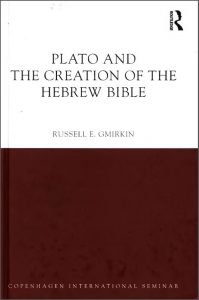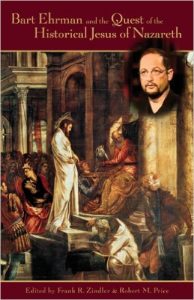So why do you side with mythicism? Or why do you think mythicism is bollocks and mythicists are agenda-driven ignoramuses? And if you do know a lot about either the mythicist side or the historicist side of the question it might be even harder for you to answer honestly, given that your one-sided knowledge may well be shutting out a clear understanding of what the other side is actually saying.
The scholar Gleb Tsipursky has written an article for The Conversation explaining how so very often it is not “the facts” that persuade us, but the way arguments are framed and presented that does the trick. The context of his article is the American election debate but the points apply anywhere.
Savvy politicians can take advantage of what scholars call cognitive biases, which make us believe something is true because we feel it is true, regardless of the evidence. This phenomenon is also known as emotional reasoning.
We may think of ourselves as rational creatures who form our opinions based on logic. In reality, our emotions play a much larger role in influencing our beliefs than we think.
We make quick and intuitive decisions based on our autopilot system of thinking, also known as system 1. This is one of the two systems of thinking in our brains. It makes good decisions most of the time, according to Nobel Prize winning psychologist Daniel Kahneman, but is more subject to bias than the other thinking system – known as the intentional system, or system 2. The intentional system is deliberate and reflective. It takes effort to use but it can catch and override the bias committed by system 1. Kahneman describes these as “fast” and “slow” thinking.
Politicians skilled in the art of public speaking can persuade us by playing to the more powerful autopilot system that guides our fast thinking and avoiding arguments based on evidence, reason and logic.
I have written about Daniel Kahneman’s system 1 and system 2 type thinking model in three earlier posts. And who can think of a potentially more emotive subject — for biblical scholars perhaps even more than for many people outside that field — than the question of Jesus’ existence?
Ever wonder why some people like to go out of their way to compare mythicism with creationism or hostile anti-Christian agendas?
Hillary Clinton stated that Donald Trump is Vladimir Putin’s “puppet.” This invoked a bias likely to cloud the minds of the audience – the halo effect. This bias emerges when we see something we like or dislike, and associate this emotional reaction with something else.
Clinton knows that many Americans do not like Putin. Plus, the image of being someone’s puppet is quite distasteful. Combining Trump with Putin and puppet is bound to create a negative emotional association.
Of course, some mythicists really do appear to be hostile anti-Christian bigots. And this makes it all the easier for some people to impute the sins of a few to all. Similarly, it may well be unfair for mythicists to accuse all biblical scholars of harboring a lurking theological or faith bias.
And ever wonder why we hear the same old, the same old . . . . Ehrman repeated the arguments he made in DJE? as if nothing has ever been said in response to them; McGrath in his post-debate discussion repeated more of the same old, the same old. . . .
For his part, Trump used repetition to drive home his claims, invoking the so-called “illusory truth effect.” This bias causes our brains to perceive something as true just because we hear it repeated. In other words, just because something is repeated several times, we perceive it as more true.
You may have noticed the last two sentences in the previous paragraph had the same meaning and a similar structure. The second sentence didn’t provide any new information, but it did cause you to believe my claim more than you did when you read the first sentence. In fact, much of advertising is based on using the illusory truth effect to get us to buy more goods.
One may wonder if Tsipursky’s next point has any relevance here:
Turning once again to Clinton, we see her utilizing the illusion of control. This bias occurs when we perceive ourselves as having more control over a situation than we actually do. For instance, Clinton attributed the decline in the U.S. national debt in the 1990s primarily to her husband’s policies. This exaggerates the actual impact that any president can have on the national debt.
Indeed, I think it does. Aren’t pesky doubters told in various ways, often directly, that they don’t have the skills to evaluate the question. They need to do years of training in a raft of ancient languages, to study the finer points of palaeography, to publish in all the right journals, to attain tenure in the right institutions before they can be considered competent to offer an opinion on the question?
And then there’s desirability bias . . . what each side desires to be the way it was (or was not) at the beginning of Christianity, for whatever reason.
Clinton also insisted – as did Trump – that her policies would add nothing to the national debt, despite independent reports by experts showing that Clinton’s economic reforms would likely add billions of dollars and Trump’s plan add trillions to the debt. Clinton’s statements on debt, along with Trump’s, showed both illusion of control and the desirability bias, which leads one to believe their idealized outcomes will come true.
Another claim often repeated by Trump ties in to his core message – America is much worse than it used to be. He conveys a rosy picture of an idealized American past, when everything was right with the world. It’s reflected in Trump’s motto: “Make America Great Again.”
This motto speaks to our tendency to view the past through rose-colored glasses, a bias known as rosy retrospection and also as declinism.
Like this:
Like Loading...



